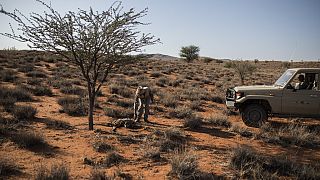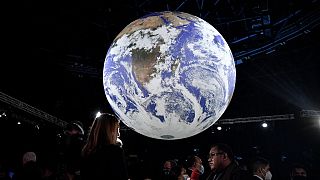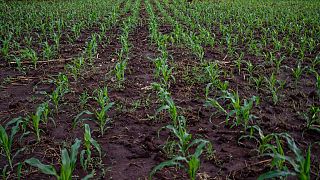Madagascar
A new study has shown that global warming has played a minor role in the famine situation in Southern Madagascar, blaming poverty and natural climate variability.
The southern part of the Indian Ocean Island has been hit by a drought unseen in decades, which has plunged more than a million people into acute malnutrition.
In June, the World Food Programme described this crisis as the first famine caused by global warming due to human activities.
However, a study by scientists at the World Weather Attribution initiative, an international collaboration led by Imperial College London and the Royal Netherlands Meteorological Institute, has attributed the situation to the drastic change in rainfall patterns, due to a rainfall deficit for 24 consecutive months between July 2019 and June 2021.
The study further discovered that a natural variation in the climate was most likely the main reason for the drought.
The group said that poverty, poor infrastructure and a high level of dependence on rain for agriculture were also behind the country's food crisis.
Madagascar received only around 60% of its usual average rainfall for two years in a row, the lowest in 30 years. The drought has led to widespread crop failure in the country's south, and around 1.3 million people nationwide are in need of food assistance.
The scientists could not rule out climate change entirely as contributing to the lower rainfall, but its role, if any, was so small that it was vague from the country's historical climate patterns.
"Instead, the study finds that vulnerability to low rainfall is the main factor behind the food crisis," the study reads. "Covid restrictions to limit public health impacts also stopped people from the region going elsewhere in the country to find work, as many people have done at other times."
WFP responded to the study by saying the food crisis was the result of a combination of above average temperatures, lower rainfall, crop failures and other vulnerabilities in communities dependent on subsistence agriculture, worsened by the economic impact of Covid-19.













01:49
Top diplomats meet in Paris to mobilize aid for Sudan
02:31
Sudan's civil war enters its first year: Famine looms large
01:11
UN issues alarming global food wastage and shortage
01:30
WFP fears more hunger amid gang violence in Haiti
Go to video
Gaza war: Babies, children and eldery die from malnutrition- health officials
02:13
IMF to assess impact of drought on Zambia's economy